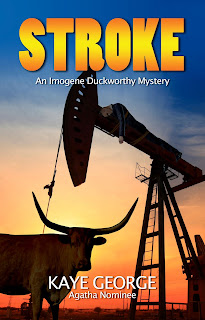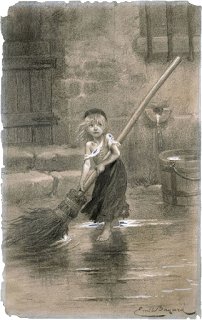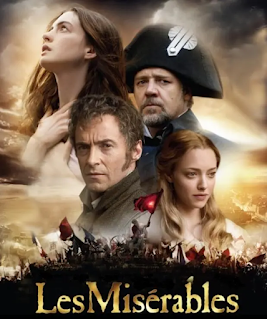No, my title's not referring to the old song by Fontella Bass and Bobby McClure (though I'm old enough to remember it). This is one of those columns that started out using one idea and ended up with another.
What I had intended to talk about today was the way we writers sometimes create a late draft of a story or novel and then, during the rewriting process, manage to edit it over and over again, to the point where our changes might be making it worse instead of better. (The trick, obviously, is to learn how to know when your story's as good as it can be . . . and then stop. It's not a case of "If it ain't broke, don't fix it." It's a case of "If it's fixed, don't keep tinkering with it.")
BUT, in the process of putting together that post about authors changing their stories for the worse, I got to thinking instead about the way some publishers have begun doing just that: changing the original works of authors like Mark Twain, Dr. Seuss, Roald Dahl, and others--usually to conform to certain current views and standards.) And while researching that, I stumbled by accident onto what might be the craziest example I've ever seen of Messing Up a Good Thing. It involves not a short story or a novel but a movie I saw in the mid-60s, one that later became a classic. In fact, it introduced the film subgenre known as the Spaghetti Western.
The movie was A Fistful of Dollars, a low-budget Italian production shot in Spain and starring a not-yet-famous actor named Clint Eastwood, who has said in interviews that he took the part mostly to get a paid vacation to Europe. In the story, a mysterious stranger rides into a Mexican town controlled by two ruthless criminal families and winds up pitting one against the other in order to steal money from both. As a result he "cleans up" the town and saves a number of its citizens (the few he hasn't shot), but that's just a byproduct; mostly, he's an antiheroic loner looking out for no one but himself.
As things turned out, the resulting film defied all odds. Even though the Italian director spoke no English and the American lead actor spoke no Italian, the movie was a mega-hit, both in the U.S. and abroad, and about ten years later it was aired on network TV here in the States. But in their infinite wisdom, the executives at ABC decided to create and add a five-minute "prologue" to the movie, using a different director, different actors, etc., in order to explain the violence and address those pesky morality issues. In their minds, the protagonist needed a backstory that provided a good reason to justify the things he later did.
To my knowledge, this edited version was broadcast and seen only once, in 1975 (some say '77, but it was '75), and if you weren't old enough or unfortunate enough to see it firsthand, here's a summary of the prologue. It features a meeting between a prison warden, played by the great Harry Dean Stanton, and a poncho-clad, cigar-smoking inmate who's seen only from the rear. The faceless convict, who never says a word during the scene, is offered a pardon if he'll go to a town called San Miguel and get rid of its two notorious gangs in any way he can, and at the end of the meeting he's given his gun and a horse and sent away on his probably-suicidal assignment.
The point is, the added scene is not only needless, it's poorly made and ridiculous in every way. Even seen from behind, the inmate is obviously a different actor from the story's hero, though there are two or three quick cutaway close-ups of Eastwood's squinting eyes, and there are other goofs as well: the convict's poncho is too long, his hat's too big, and he's given a horse and a long-barreled revolver although the real Eastwood is seen ten minutes later riding a mule and using a shorter-barreled revolver. All the scene did, besides making the director look dumb, is make the protagonist less mysterious and less appealing. One of the comments on the YouTube video says (and it's right) that this added prologue looked more like a skit from Saturday Night Live.
Anyhow, here's the video. which precedes the opening credits of the movie. Judge for yourself.
As for this kind of after-the-fact interference, I believe one of the networks did something similar when On Her Majesty's Secret Service first aired on TV years ago, and I 've heard about several other cases. And bookwise, there are of course the ongoing efforts to sanitize and censor published fictional works of deceased authors. Personally, I've experienced this type of destructive meddling only on a very small scale, when certain magazine editors removed things from or added things to my short-story manuscripts that wound up making them (in my opinion) less effective, but that is their right and those cases are rare. Most editors make things better, not worse.
What do you think of all this? Can you remember instances of it, on either the screen or the page? If it's happened to you or to others you know, on any scale, please let me know in the comments section below.
Anyway, that's that. I apologize for getting sidetracked from my original mission--but I found this particular movie example fascinating. I do plan to do a column soon about overwriting-to-the-point-of-destroying an otherwise good story, because it's something I've done and I'm sure others have done also. But making a good story worse seems even more terrible when someone else steps in and does it for you.
Meanwhile, happy writing, reading, and viewing.
Have a great weekend!













.jpg)


















